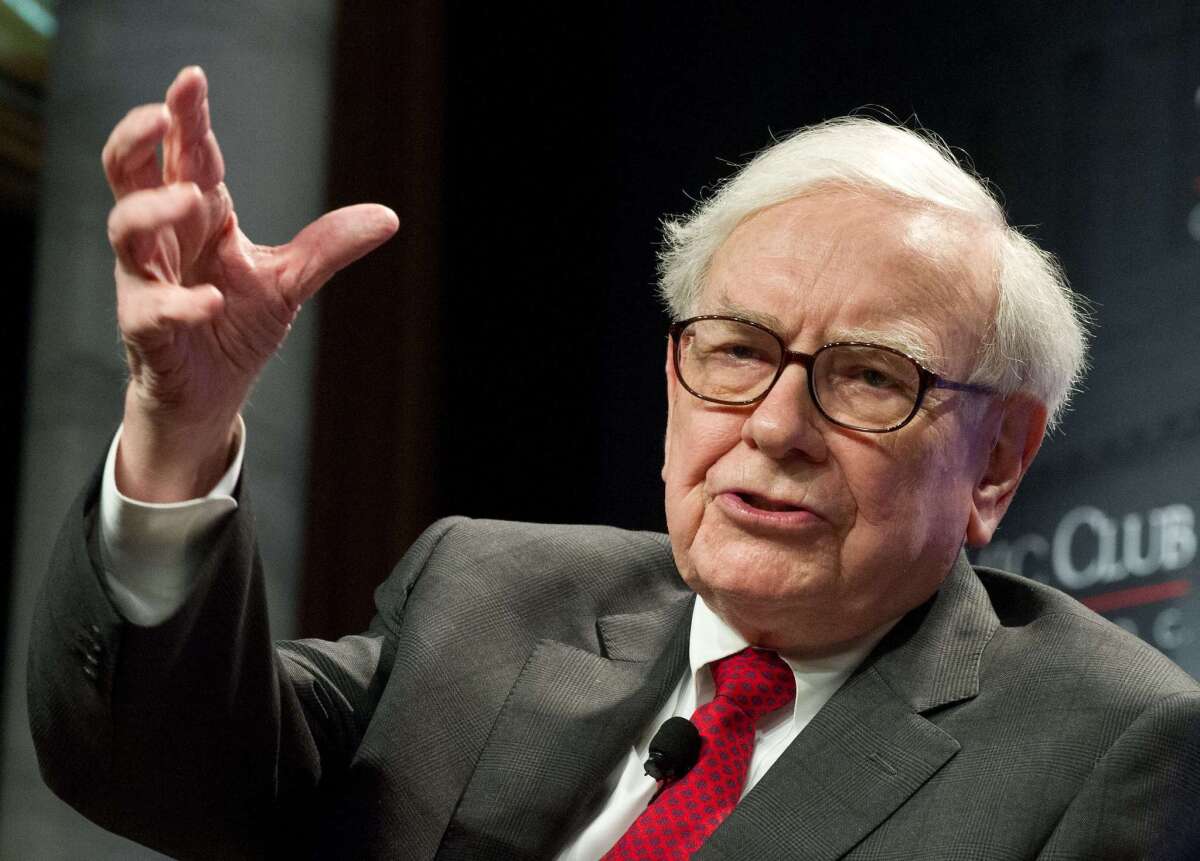Warren Buffett is ‘betting against America’ on Burger King. Or is he?

Back in February, in his annual message to shareholders in his company Berkshire Hathaway, Warren Buffett said this:
“Who has ever benefited during the past 237 years by betting against America? ... America’s best years lie ahead.”
You can expect these words to be thrown back in Buffett’s face this week (as we’re doing), as word spreads of his investment in a corporate “inversion” deal, in which Burger King will relocate its tax home to Canada.
But it’s worthwhile to take a closer look at Buffett’s involvement, and about his opinion of corporate taxation -- indeed, of taxes in general. Here’s a spoiler: He doesn’t think U.S. corporate taxes are too high, and he’s not really in favor of the inversion loophole.
First, some background.
Inversion deals involve U.S. companies buying smaller foreign firms to take advantage of the latters’ lower tax rates and other opportunities for financial manipulation. (We outlined the issues here and here, citing Ed Kleinbard of USC, author of the definitive analysis of inversions.) Buffett’s investment is in an especially high-profile example, the purchase by Burger King of the Canadian restaurant chain Tim Hortons; Berkshire Hathaway reportedly will be putting up about 25% of the financing for the merger.
Inversions are controversial because they often appear to be paper transactions undertaken as a tax dodge -- and one that leaves U.S. taxpayers stuck with the bill. Typically, managements don’t relocate and the workforce and manufacturing plants aren’t moved abroad.
The deals have acquired a noxious political odor. President Obama has denounced their participants as “corporate deserters,” which isn’t far from the truth.
Pfizer attempted an inversion by acquiring the British drug company AstraZeneca, but the deal fell through, and political headwinds might keep Pfizer from seeking another partner. Walgreens, which contemplated an inversion this month via the purchase of the Switzerland-based retailer Alliance Boots, dropped the idea after it provoked a public uproar.
Obama and Democrats in Congress propose forbidding a U.S. corporation to move its tax domicile abroad unless more than 50% of the shareholders of the corporation are foreigners after the merger, up from 20%. Kleinbard suggests that by ending a policy that “rewards tax perversity over commercial reality,” such a change, along with a few other alterations in tax law, would stop most inversions in their tracks.
As a familiar street-corner name, Burger King might face the same reaction as Walgreens. So Buffett’s participation in the Burger King deal has some people scratching their heads.
That’s especially so since he’s become a spokesman for the idea of improving the fairness of the tax system. His observation that his personal tax rate was lower than his secretary’s led to the “Buffett Rule” proposal, which would produce a minimum tax rate for the 1%. The rule has never been enacted, but it probably helped Buffett get the Presidential Medal of Freedom from President Obama in 2011.
That’s why people are saying that Buffett’s attachment to the Burger King deal is an embarassment for the White House. (“Looks awkward” is the Wall Street Journal’s uncharacteristically charitable description of the optics.) But is it?
To begin with, Buffett is taking pains to downplay the tax aspects of the Burger King deal. In a statement to the Financial Times, he portrayed it more as a political compromise, designed to quell Canadian sensitivities about the fate of an emblematic Canadian brand. “I just don’t know how the Canadians would feel about Tim Hortons moving to Florida,” he said. “The main thing here is to make the Canadians happy.”
Investment experts don’t necessarily buy that; the deal is likely to provide the merged company with a way to shift reported earnings from the U.S. to lower-tax jurisdictions around the world where it has restaurants, cutting its U.S. taxes.
More to the point, Buffett may feel the need to minimize the tax implications of the merger because they’re at odds with his own pronouncements about corporate taxes. Consider what he said during an extended interview with CNBC on May 5, after Berkshire Hathaway’s annual shareholder meeting.
There he scoffed at claims that American corporations are significantly disadvantaged by their U.S. tax burden. “Pfizer is a very profitable company,” he said. “They’d like to make even more money by not paying taxes. But they have a wonderful business paying U.S. corporate tax rates.”
He observed that as a percentage of gross domestic product, since World War II corporate taxes have “come down from 4 percent to about 2 percent.... That’s while corporate profits have been hitting record levels. So if you look at the budget of the United States, individuals have paid more taxes, corporations have come down from 4 percent of GDP to 2 percent of GDP. No other group has come down as much percentage-wise as corporations. Corporations are doing fine in the United States.”
(If you want to amuse yourself, watch the CNBC anchors try to goad him into taking the fleeing companies’ side. He doesn’t bite.)
Of the inversion loophole, he said: “I would personally change that part of the law.... It’s probably a mistake to have that part of it.... But American business, I will tell you, whether it’s Berkshire Hathaway or Pfizer or Apple, are doing wonderfully under this tax code and are not short of capital in any way, shape or form, or are having any trouble competing.”
Finally, he recognized that the surge in high-profile U.S. companies pursuing inversions would provoke Congress to “address” the loophole. But he warned that “will cause one hell of a fight in corporate America.”
So why would Buffett invest in the Burger King deal? Leaving aside his assertions about international politics, one reason may be his relationship with Burger King’s majority owners, 3G Capital Management, a Brazilian private equity firm.
Berkshire Hathaway joined with 3G in the acquisition of HJ Heinz Co. last year, and Buffett has expressed admiration for its managing partners. He told the Financial Times that 3G offered him a chance to invest in its original acquisition of Burger King in 2010, and he considers it a “mistake” that he turned it down.
So this may be a chance for him to get in on a company he thinks 3G may yet turn around. But it doesn’t look like he’s changed his mind much on inversions in general. He thinks the inversion loophole is a bad idea, and he doesn’t buy the argument that skipping out on American taxes is the only way for a corporation to make money in America.
Keep up to date with The Economy Hub by following @hiltzikm.
More to Read
Inside the business of entertainment
The Wide Shot brings you news, analysis and insights on everything from streaming wars to production — and what it all means for the future.
You may occasionally receive promotional content from the Los Angeles Times.











